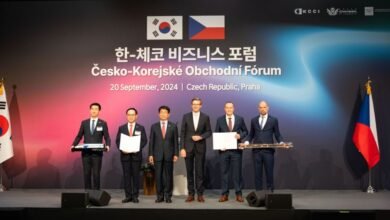Globe selects Ansys to reduce development costs for fuel cell systems

Fuel cell technology company Globe Fuel Cell Systems uses Ansys simulation software to enable cost savings in the development of its individual hydrogen fuel cells and fuel cell systems for carbon-neutral objectives for intralogistics.
Specifically, these objectives involve the optimization and automation of information within industrial spaces, including distribution centers, warehouses, and hospitals in support of Globe customers on their path to decarbonization.
Temperature regulation is a key function of hydrogen-based fuel cell systems, as any missteps in system optimization can negatively impact energy conversion. Airflow is an important aspect of successful regulation that facilitates system cooling to manage any unexpected temperature fluctuations. For Globe, precision in these areas requires an understanding of mass flows, temperature drops, and flow distribution in one efficient loop involving a lot of time and physical testing.
Globe is using Ansys simulation during computational fluid dynamics (CFD) analysis to speed the validation of cooling loop performance and reduce the number of system iterations needed to verify temperature requirements. Simulating the cooling loop within the context of the entire fuel cell system also helps Globe engineers better understand the needed airflow, as well as identify any physical adaptations needed to optimize system performance.
Using this approach, Globe reduced development costs by more than $150,000. Today, simulation is a key component of Globe’s approval process for fast, predictively accurate results on the path to system certification – an activity that will significantly accelerate system scaling possibilities in the future.
Ansys simulation enabled Globe’s XLP80 (pictured), a complete hybrid fuel cell system combined with lithium-ion battery power, to deliver high-energy output in support of a pro-hydrogen economy.
“The transportation industry plays an outsized role in global decarbonization, where speed and reliability are critical,” said Dr. Bernhard Wienk-Borgert. “Globe’s R&D team relies on Ansys simulation combined with advice from CADFEM to accelerate the development of our novel solutions with the confidence that they will perform safely in the real world while meeting customer objectives for carbon neutrality.”
“Achieving carbon neutrality is a tremendous effort dependent upon novel solutions like hydrogen fuel cell technology to address our current climate crisis,” said Prith Banerjee. “Simulation presents immediate scaling opportunities for fuel cell technology that can drive down development times and fuel cell stack costs, and quickly open up numerous possibilities in markets that were once aspirational for our customers.”
